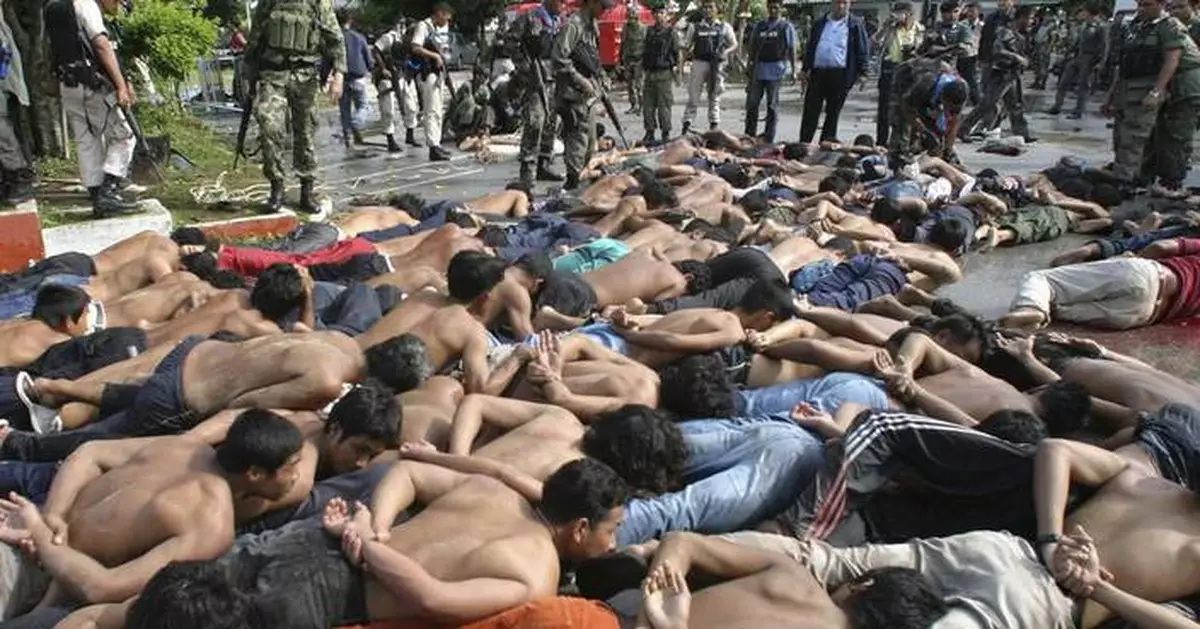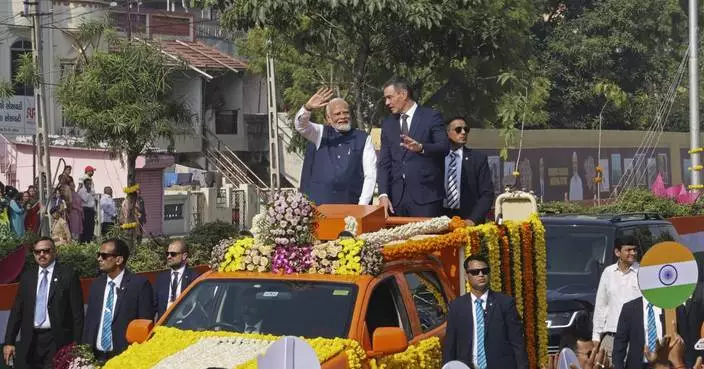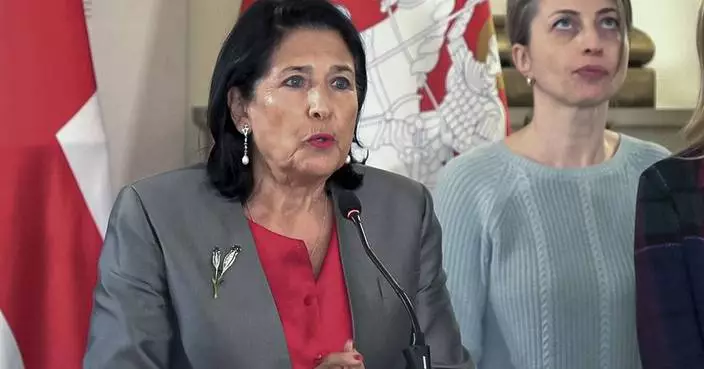BANGKOK (AP) — A court in southern Thailand on Monday dropped a case against former state security personnel and officials over the deaths of 85 Muslim protesters in 2004, saying none of the suspects had been apprehended.
Families of the victims of what is known as the Tak Bai massacre in April accused seven soldiers and government officials of murder, attempted murder and unlawful detention. The Narathiwat Provincial Court formally accepted the case in August.
While there was enough evidence for an indictment, the court said the case was unable to proceed as no suspects were arrested and brought to the court, and as a result, the 20-year statute of limitations expired on Friday.
The court’s statement noted that its order is not a dismissal of the charges against the suspects, as they “had never entered the legal proceedings, but fled until the statute of limitations expired.”
One of those named is Pisal Wattanawongkiri, commander of the 4th Army Region at the time of the incident. At the time of indictment in August, he was a lawmaker of the ruling Pheu Thai party. The party said he filed a medical leave to seek treatment abroad, and resigned from the party earlier this month. Other suspects were also believed to have left the country after the indictment.
The case earned notoriety because of the manner in which the victims died. On Oct. 25, 2004, thousands of protesters gathered at the police station in Narathiwat’s Tak Bai district to demand the release of six Muslim men who had been detained several days earlier. The detainees, members of an official village defense force, were accused by police of handing over weapons to Muslim insurgents, but reporting them stolen.
Seven of the protesters were shot dead after the demonstration turned violent. Around 1,300 of them were later rounded up, had their hands tied and were loaded onto trucks, stacked like firewood. By the time the vehicles reached an army base where they were taken to be detained, 78 had died of crushing or suffocation. Several others were seriously injured or became disabled due to crushing.
The deaths occurred shortly after a Muslim separatist insurgency erupted in Thailand’s southernmost provinces of Narathiwat, Pattani and Yala, the only ones with Muslim majorities in the Buddhist-dominated nation.
Muslim residents have long complained of being treated like second-class citizens in Thailand, and separatist movements have been periodically active for decades. Heavy-handed crackdowns have fueled the discontent. Fighting continues to this day, but at a lower level.
Speaking to reporters outside the court, Ratsada Manooratsada, who represents the victims' families, said while the outcome was expected, the legal team will continue to pursue other alternatives, including investigations into whether police officers had purposefully delayed the proceedings until the case had almost expired.
“The statute of limitations in memory of the people will never have an expiration date,” he said.
The U.N. special rapporteurs of the Human Rights Council issued a statement last week calling for the investigation and the pursuit of justice to continue even after the statute of limitations expired, as “a failure to investigate and bring perpetrators to justice is itself a violation of Thailand’s human rights obligations.”
Prime Minister Paetongtarn Shinawatra last week said that it wasn't possible to extend the validity of the case. She offered an official apology to those affected, insisting that all relevant agencies had done what they could to provide justice.
“We will do our best to prevent such an incident from happening again,” she said.
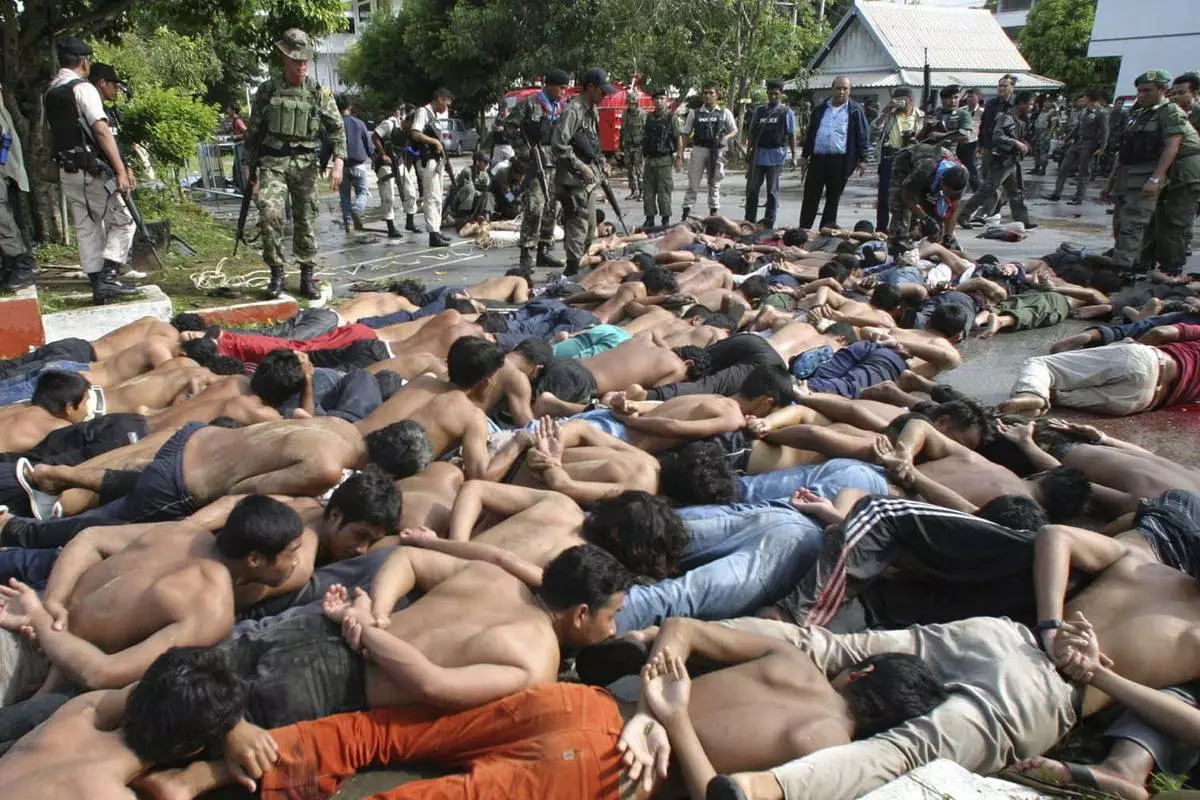
FILE - Thai-Muslim rioters lie on the ground after they were arrested and forced to take off their shirts by Thai security forces after rioting at Takbai district of Narathiwat province, southern Thailand, on Oct. 25, 2004. (AP Photo, File)
The social platform X has suspended a new account on behalf of Iran’s Supreme Leader Ayatollah Ali Khamenei that posted messages in Hebrew.
The account was suspended early Monday with a brief note appended to it saying: “X suspends accounts which violate the X Rules.” It wasn’t immediately clear what the violation was. The Elon Musk-owned social media company did not respond to a request for comment from The Associated Press.
The move came after Israel openly attacked Iran for the first time this weekend. Khamenei said in a speech on Sunday that Israel’s strikes — in response to Iran’s ballistic missile attack this month — “should not be exaggerated nor downplayed,” while stopping short of calling for retaliation.
The X account opened Sunday with a message in Hebrew reading: “In the name of God, the most merciful,” a standard Islamic greeting.
Khamenei’s office has maintained multiple accounts for the 85-year-old supreme leader on X for years and has sent messages in a variety of languages in the past.
A second message corresponded to a speech Khamenei gave on Sunday and was sent on his English account as: “Zionists are making a miscalculation with respect to Iran. They don’t know Iran. They still haven’t been able to correctly understand the power, initiative, and determination of the Iranian people.” The message referred to Israel’s attack Saturday on Iran.
This isn’t the first time Khamenei has seen a suspension or removal from social media. In February, Meta removed Facebook and Instagram accounts for the supreme leader over his support of the militant group Hamas after its Oct. 7, 2023, attack on Israel.
Social media platforms like X and Facebook have been blocked in Iran for years, requiring Iranians to use virtual private networks to access them.
Here’s the latest:
DUBAI, United Arab Emirates — The head of Iran’s paramilitary Revolutionary Guard made his first public comments Monday after Israel’s weekend attack on the country.
Gen. Hossein Salami, in a condolence message to Iran’s regular military, called Israel’s strike “illegitimate and illegal.” Four soldiers in Iran’s air defense network were killed in the attack on Saturday, as was one civilian, Iranian state media say.
The attack was “a sign of miscalculation and the inability” of Israel on the battlefield with Iranian-backed militants “particularly in Gaza and Lebanon.”
The “bitter consequences will be beyond the imagination of the occupiers,” Salami added, referring to Israel.
BAGHDAD, Iraq — Iraq has submitted a memorandum of protest to the Secretary-General of the United Nations and the U.N. Security Council saying Israel violated its airspace in carrying out its attack on Iran over the weekend, the Iraqi prime minister’s office said in a statement.
The statement said that Israeli “aggressor aircraft violated Iraq’s airspace and sovereignty and used Iraqi airspace to carry out the attack on the Islamic Republic of Iran on Oct. 26.”
It added that Iraqi Prime Minister Mohammed Shia al-Sudani had directed Iraq’s foreign minister to discuss the matter with the United States. The two countries recently reached an agreement to begin winding down the mission of a U.S.-led coalition formed to fight the Islamic State militant group and to withdraw many of the U.S. troops who remain in the country.
On Sunday, the Iran-backed Iraqi militia Kataib Hezbollah issued a statement accusing the U.S. of coordinating with Israel to use Iraqi airspace to launch the attack on Iran and threatening retaliation against U.S. forces.
UNITED NATIONS — The U.N. Security Council scheduled an emergency meeting Monday afternoon at Iran’s request on Israel’s air strikes against the country.
Switzerland, which holds the council’s rotating presidency, announced the meeting on Sunday and said the Iranian request was supported by Russia, China and Algeria, the Arab representative on the council.
TEHRAN, Iran — Iran’s President Masoud Pezeshkian says his country will respond to Israel “appropriately," after Israel openly attacked Iranian military sites for the first time this weekend.
“We are not seeking war, but we will defend the rights of our nation and country and will respond appropriately to the Zionist regime’s aggression,” Pezeshkian was quoted by state TV on Sunday as saying.
Pezeshkian also said the U.S. had promised Iran to stop the war in Gaza and Lebanon if Iran restrained. “They had promised to end the war in response to our restraint, but they did not keep their word,” he said.
The Iranian president also warned tensions will escalate if Israel’s aggression continues, adding, “We know that the United States is encouraging Israel to commit these atrocities.”
DUBAI, United Arab Emirates — Iran announced Sunday that a civilian had been killed in Israel’s attack on the country, without offering any details on the circumstances of his death.
The state-run IRNA news agency identified the dead man as Allahverdi Rahimpour and said he lived in a suburban area of southwestern Tehran.
While offering no details on what he was doing or where he was killed, IRNA made a point to say he was not a member of Iran’s armed forces.
Iran has offered few details on the attack and the damage caused by them so far.
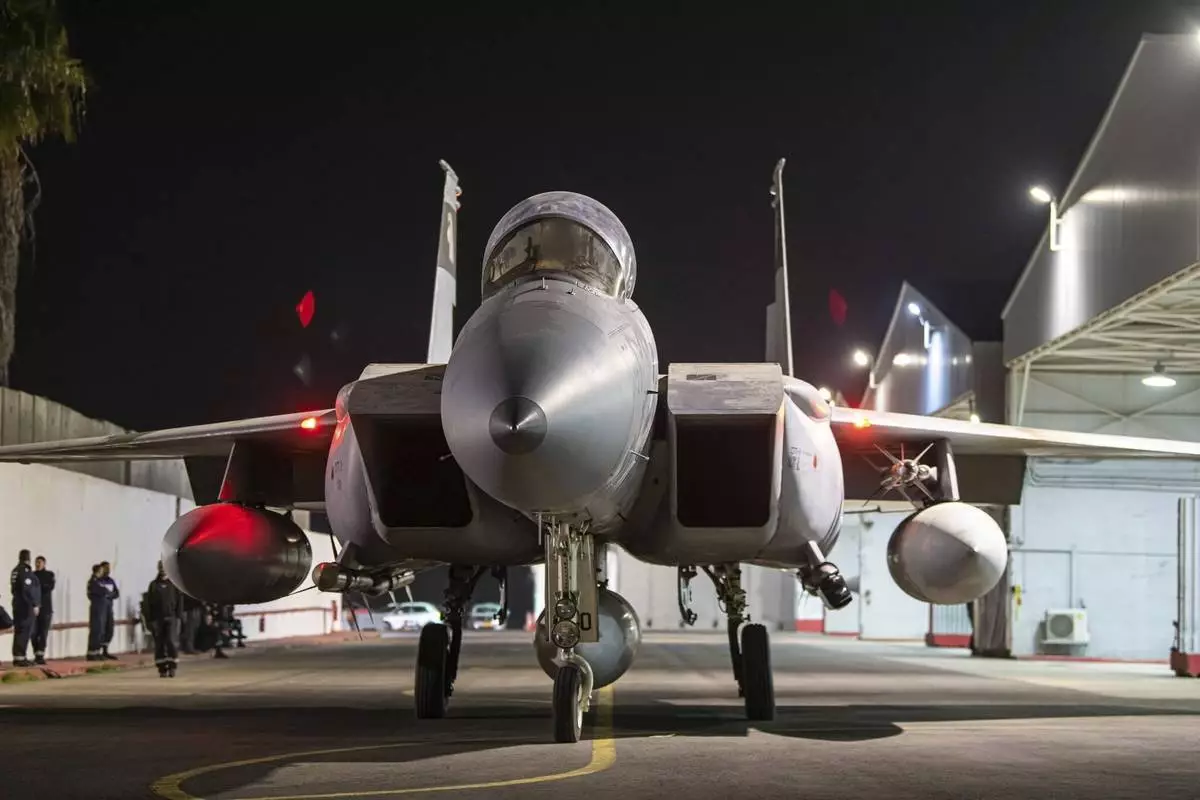
In this photo provided by the Israeli army, armed Israeli Air Force planes depart from an unknown location to attack Iran, Saturday, Oct. 26, 2024. (Israeli Army via AP)
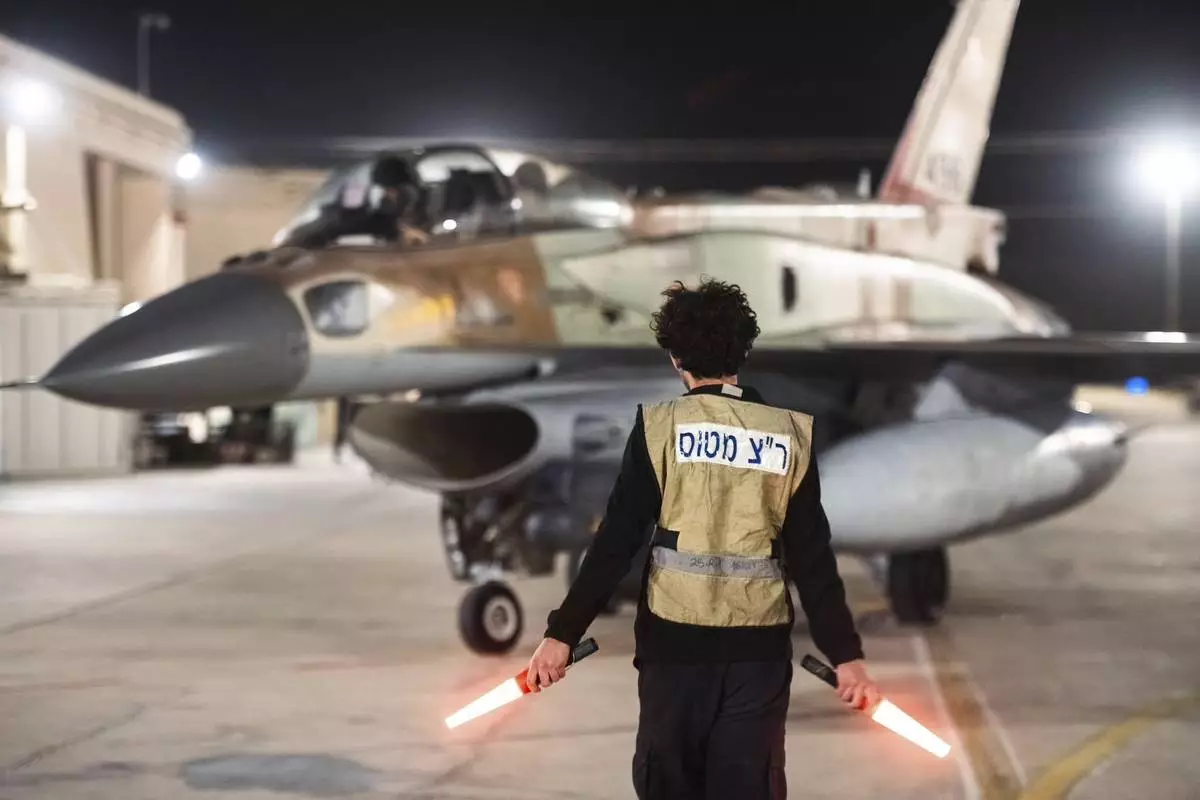
In this photo provided by the Israeli army, armed Israeli Air Force planes depart from an unknown location to attack Iran, Saturday, Oct. 26, 2024. (Israeli Army via AP)
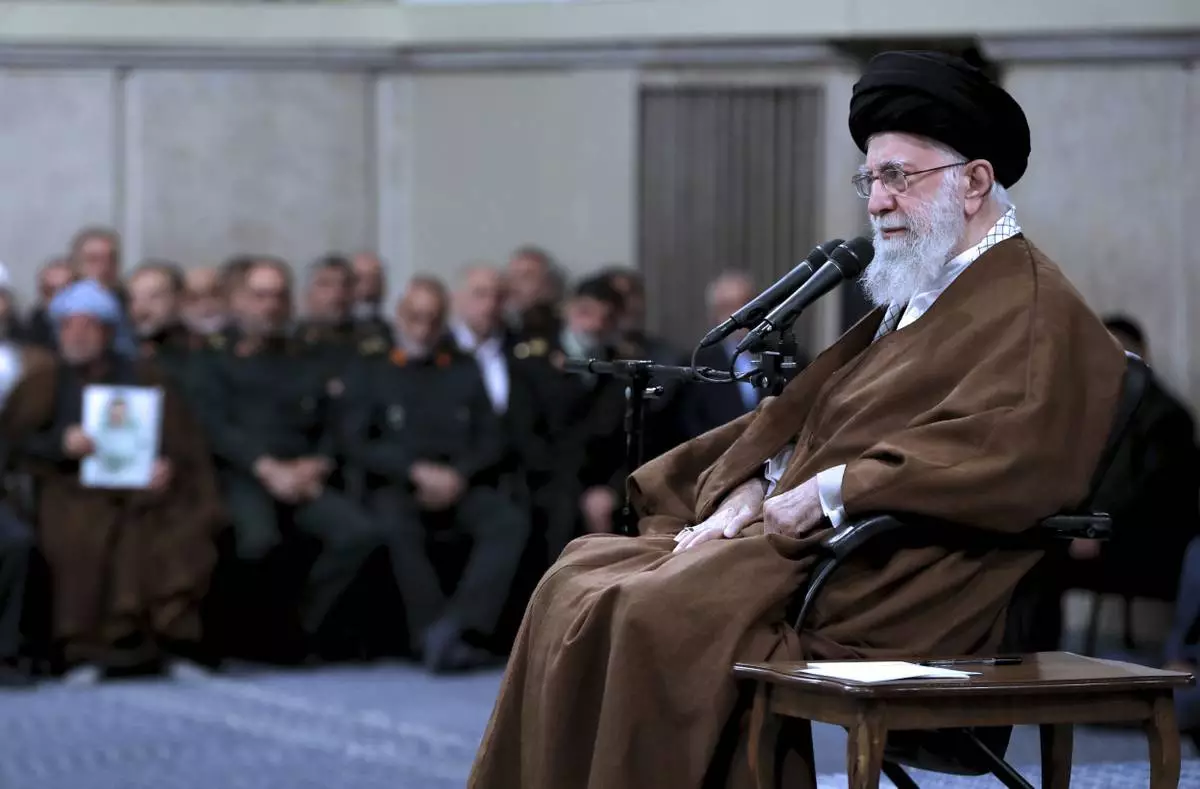
In this photo released by an official website of the office of the Iranian supreme leader, Supreme Leader Ayatollah Ali Khamenei sits in a meeting in Tehran, Iran, Sunday, Oct. 27, 2024. (Office of the Iranian Supreme Leader via AP)
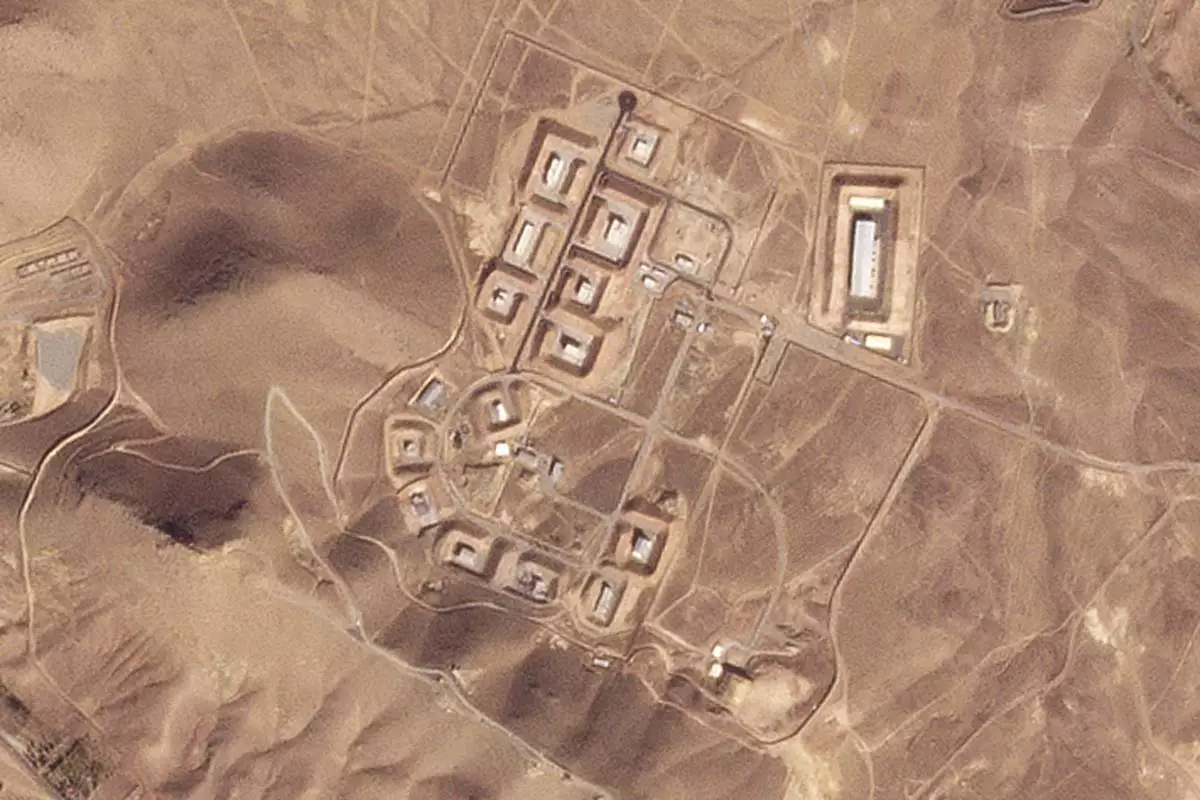
This satellite photo from Planet Labs PBC shows damaged buildings at Iran's Khojir military base outside of Tehran, Iran, Saturday, Oct. 26, 2024. An Israeli attack on Iran damaged facilities at a secretive military base southeast of the Iranian capital that experts in the past have linked to Tehran's onetime nuclear weapons program and at another base tied to its ballistic missile program, satellite photos analyzed Sunday by The Associated Press show. The damaged structures are in the bottom center of the image. (Planet Labs PBC via AP)
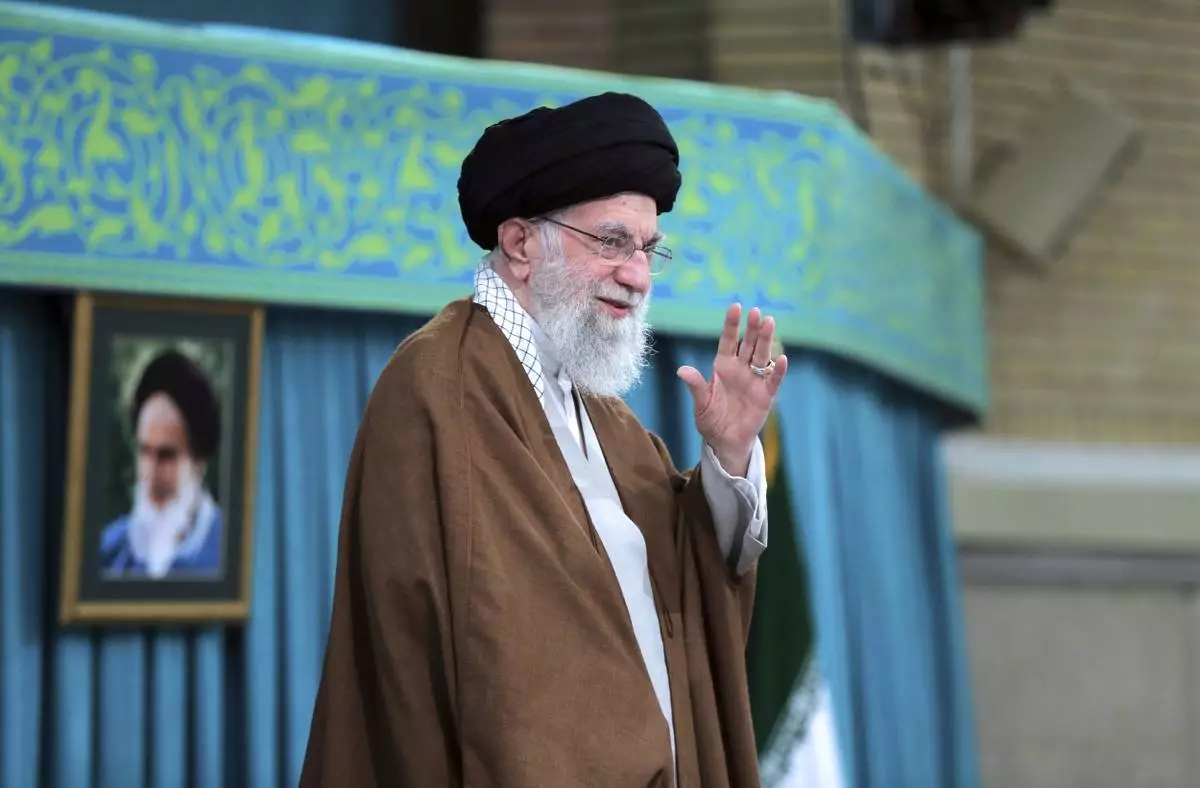
In this photo released by an official website of the office of the Iranian supreme leader, Supreme Leader Ayatollah Ali Khamenei waves to the crowd in a meeting in Tehran, Iran, Sunday, Oct. 27, 2024. (Office of the Iranian Supreme Leader via AP)



